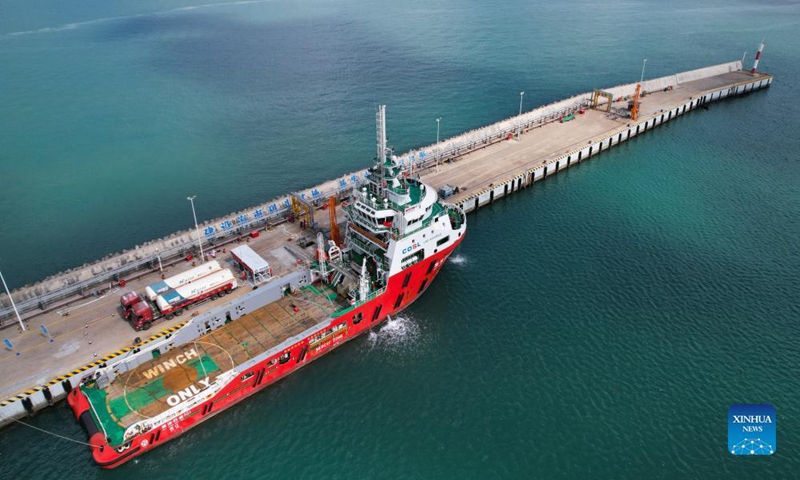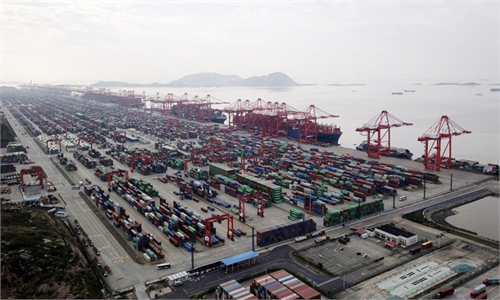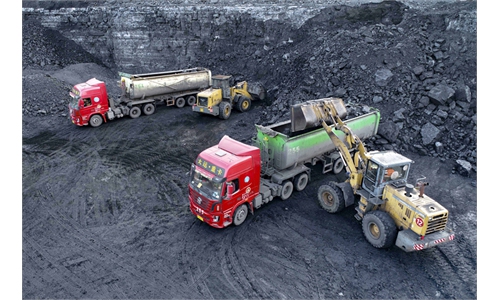
Aerial photo taken on Nov. 20, 2021 shows a berthed ship being filled with liquefied natural gas (LNG) at an LNG filling station in Macun port of Chengmai County, south China's Hainan Province.Photo:Xinhua
China's energy imports saw double-digit growth in terms of value in the first quarter of 2022, even though volume drops significantly, amid surge in global prices, according to the General Administration of Customs (GAC) on Wednesday.
Li Kuiwen, a spokesperson for the GAC, said that higher commodity prices have pushed up the value of imports. The import value of crude oil, natural gas, food and other bulk commodities showed double-digit year-on-year growth in the first quarter, according to Li.
According to GAC data, the purchase prices for 85.14 million tons of crude oil in the first two months of the year totaled $50.67 billion, whereas the country spent $30.22 billion for 42.71 million tons of crude oil in March.
China's first-quarter imports of crude oil and natural gas reached 127.85 million tons and 27.82 million tons respectively, down 8.1 percent and 5.1 percent year-on-year.
Global energy prices have surged due to the Russia-Ukraine conflict, Lin Boqiang, director of the China Center for Energy Economics Research at Xiamen University, told the Global Times on Wednesday.
Lin said that even though companies still need energy, fewer importers or companies can afford the higher prices, so the total import volume dropped.
China may spend nearly $100 billion more on importing crude oil in 2022 than in 2021 amid the sharp increase in prices, Wang Nengquan, chief economist of Sinochem Energy, said at a forum held by the China Petroleum Circulation Association (CPCA) on Tuesday.
The ultimate cost is yet to be determined, financial media outlet Caixin reported on Wednesday.
Lin said that prices will continue to surge for a while, and the medium- to long-term strategy will be mostly to seek and develop substitutes such as renewable energies, especially as China highly relies on crude oil imports with a 70-percent external dependence.
Sun Renjin, an official from the CPCA, said at the forum on Tuesday that oil prices may remain at a high level in 2022, and fluctuate within the $90-120 per barrel range. If the Russia-Ukraine conflict lasts for more than six months, oil prices may even exceed the record highs of 2008.
Analysts noted that while China's overall energy security is not at risk, possible long-term impact may emerge.
Wang said that the surging price of crude oil will exert pressure on downstream users. As the downstream market is fragmented and competitive, enterprises may not be able to fully pass the rising costs on to consumers, resulting in compressed profit margins and other negative impacts, according to Wang.
Global Times



